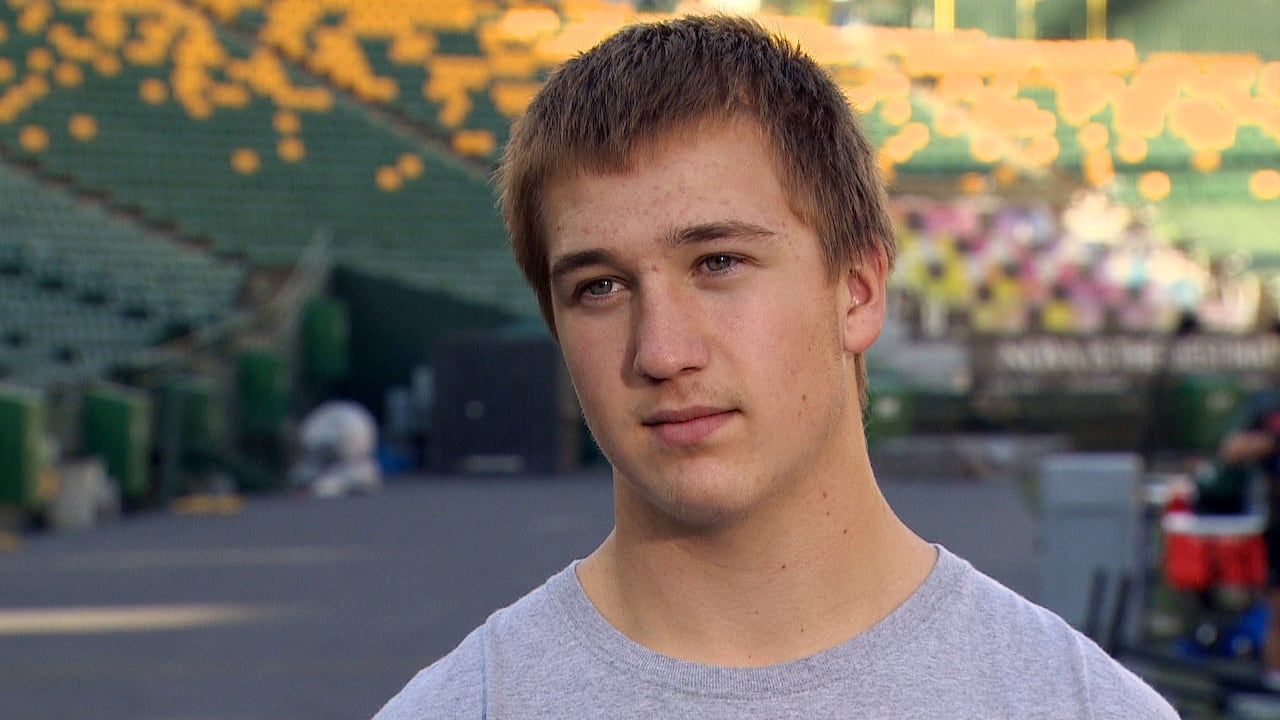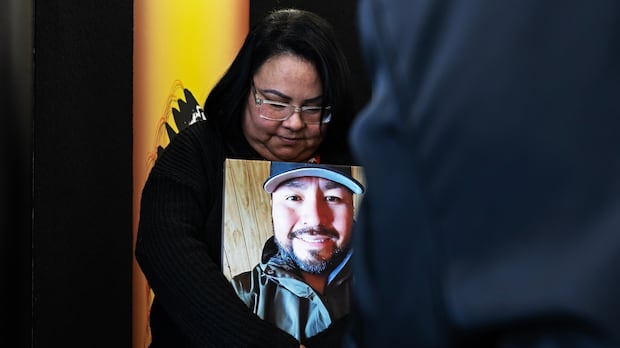Paige Beck isn’t the type to fall behind.
The 16-year-old is keeping up her running schedule even though Alberta’s provincewide teachers' strike postponed provincial cross country races.
She’s also trying to keep up with the Grade 12 biology course she’s taking as a Grade 11 student.
But the teachers’ strike might be one barrier she can’t push through.
On Oct. 6, more than 51,000 teachers across Alberta walked off the job after months of failed negotiations between the Alberta Teachers’ Association and the provincial government.
Key issues the two can’t agree on include classroom sizes and salaries. The resulting strike is now heading into its third week.
WATCH | ATA responds to letter from province asking teachers to voluntarily return to work :The Alberta Teachers' Association says it is insulted by a letter from the province asking teachers to voluntarily return to work. The province's request also proposes taking a key bargaining issue off the table.And students are starting to feel the pinch.
“I've missed 10 days of class time, which is almost an eighth of the course,” Beck said of her biology class.
“I am very concerned about how I'm going to do on the diploma, and how that's going to affect my application to university.”
On Friday, the province announced it would adjust how standardized exams will work, also called “diploma exams.”
 Paige Beck, 16, is missing out on a cross-country provincial race due to the strike. (Sam Samson/CBC)
Paige Beck, 16, is missing out on a cross-country provincial race due to the strike. (Sam Samson/CBC)Those tests are worth a large portion of a student’s final grade, and can affect their chances of getting into post-secondary programs.
November diploma exams will now be optional.
If a student doesn’t want to write the test, their final grade will be based entirely on other marks.
The province says choosing not to write the exams won’t affect a student’s ability to apply to post-secondary schools.
But unluckily for Beck, no changes have been made to exams slated for January or June, meaning she’s on her own to prepare for her biology exam, worth 30 per cent of her grade.
“We’re on molecular genetics right now and the different phases of the cell. They’re tricky concepts and they’re very easy to mix up,” said Beck.
“It is so much harder to try to learn at home. It's really helped me appreciate how much the teachers do for me and how much they do for everybody.”
 Grade 12 student Jane Kundert hopes, if nothing changes with the teacher strike soon, the province will make adjustments to January exams. (Submitted by Jane Kundert)
Grade 12 student Jane Kundert hopes, if nothing changes with the teacher strike soon, the province will make adjustments to January exams. (Submitted by Jane Kundert)Grade 12 student Jane Kundert is facing double the pressure on diploma exams.
The 17-year-old needs to sustain their marks to keep their early admission to the University of Alberta’s kinesiology program.
But they also applied to nursing programs at other schools. Admission there is still dependent on January diploma exams.
“I'm definitely stressed out about it,” said Kundert.
“I'm sort of on the fence here because on one hand, I'm really glad the teachers are doing something because the class sizes are affecting my learning. But the strike is also affecting my learning. So it's sort of a lose, lose situation.”
Alberta Premier Danielle Smith said Friday that her government would enforce back-to-work legislation if students have not returned to the classroom by the time the legislature sits on Oct. 27.
“It would constitute irreparable harm to children, especially those who are doing the preparation to prepare for university and prepare for diploma exams,” said Smith.
“If we do not get back to the table next week, with students returning to the classroom, you should fully expect there will be legislation.”
Kundert says getting back to class might help with exams, but a forced teacher return could mean teachers don’t take on extra-curricular responsibilities like coaching.
“This is our last year of high school and we're sort of used to seeing all these people in Grade 12 have fun with their last year,” they said.
“Work-to-rule — like no sports teams, no clubs, no activities, no school trips — would absolutely upend our last year of high school.”
 Ardrossan Bisons running back Joe Klespitz says the cancellation of high school football games means he's missing out on game tape he hoped to send to recruiters. (Bob Grieves/CBC)
Ardrossan Bisons running back Joe Klespitz says the cancellation of high school football games means he's missing out on game tape he hoped to send to recruiters. (Bob Grieves/CBC)A lack of school sports is already impacting students relying on athletic scholarships.
School Sport Alberta’s strike contingency plans include potentially cancelling provincial championships for football and volleyball if teacher labour action continues into mid November.
A lack of regular games is already affecting 16-year-old Joe Klespitz, a running back for the Ardrossan Bisons.
The Grade 11 student at Ardrossan Junior Senior High School says without a season or a championship, he won’t have recent game tape to send to post-secondary coaches or recruiters.
“They start looking at you in Grade 11 and start scouting you out, so by Grade 12, you can have a scholarship or an opportunity ready for you right after you’re done the season,” said Klespitz.
“I’m fairly worried about it, but I’m sure it’ll all work out in the end. But it does suck, of course, to lose film and lose those opportunities that could be presented to you.”











